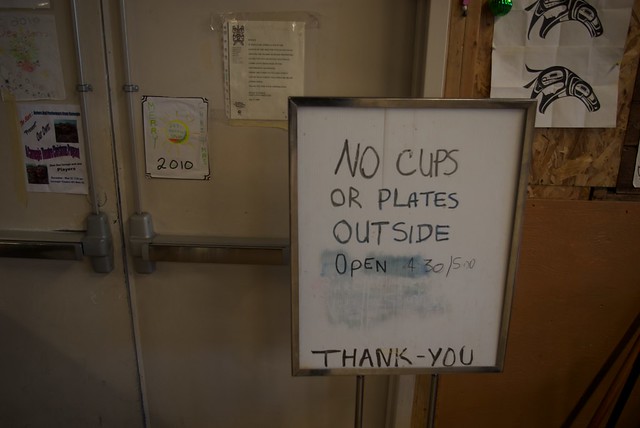This month more buildings were added to the list of disappearing affordable housing in Vancouver. On May 1st the Colonial and Seaview hotels were privatized, with rents now scheduled to increase significantly in the coming months. For two years the buildings were run by the Portland Hotel Society on a non-profit contract with the private owners. According to the new building manager of the Colonial Hotel, the $375 rent in the 170 units is now scheduled to increase by a minimum of $50 in smaller units and “exponentially more” for larger units.
In August, the Flint Hotel will also be privatized. However, none of these changes will be registered by the city as reductions in the low-income housing stock. The city claims to adhere to a “one for one” housing replacement policy under the Zoning and Development By-law. The policy gives the appearance of maintaining the number of low-rent units by maintaining a stable number of SROs across the city. However, the number of SROs does not reflect how much affordable housing is available since an SRO is not defined on the basis of affordability, but rather on the basis of size. Dramatic rent increases in formerly low-income buildings are not measured as “losses” so long as they remain “designated” buildings under the city’s SRA By-law.
The Lotus Hotel at Pender and Abbott, for example, which currently falls within the “SRA” category, is undergoing renovations and will be opening in the coming months at market rates far out of reach of the low-income residents formerly living there. The same is true for the American Hotel, Burns Block, and countless other private hotels that have undergone upscaling due to gentrification.
At least one current resident of the Colonial Hotel has already decided to move out despite not having found alternative housing. Others will be forced to leave because their rent allowance will now be less than rent itself. Eviction is also now more likely because the new management explicitly does not believe in harm reduction and have stated they will toughen their approach towards residents who use drugs. When asked about his eviction policy, the new building manager at the Colonial replied, “my boot.”




